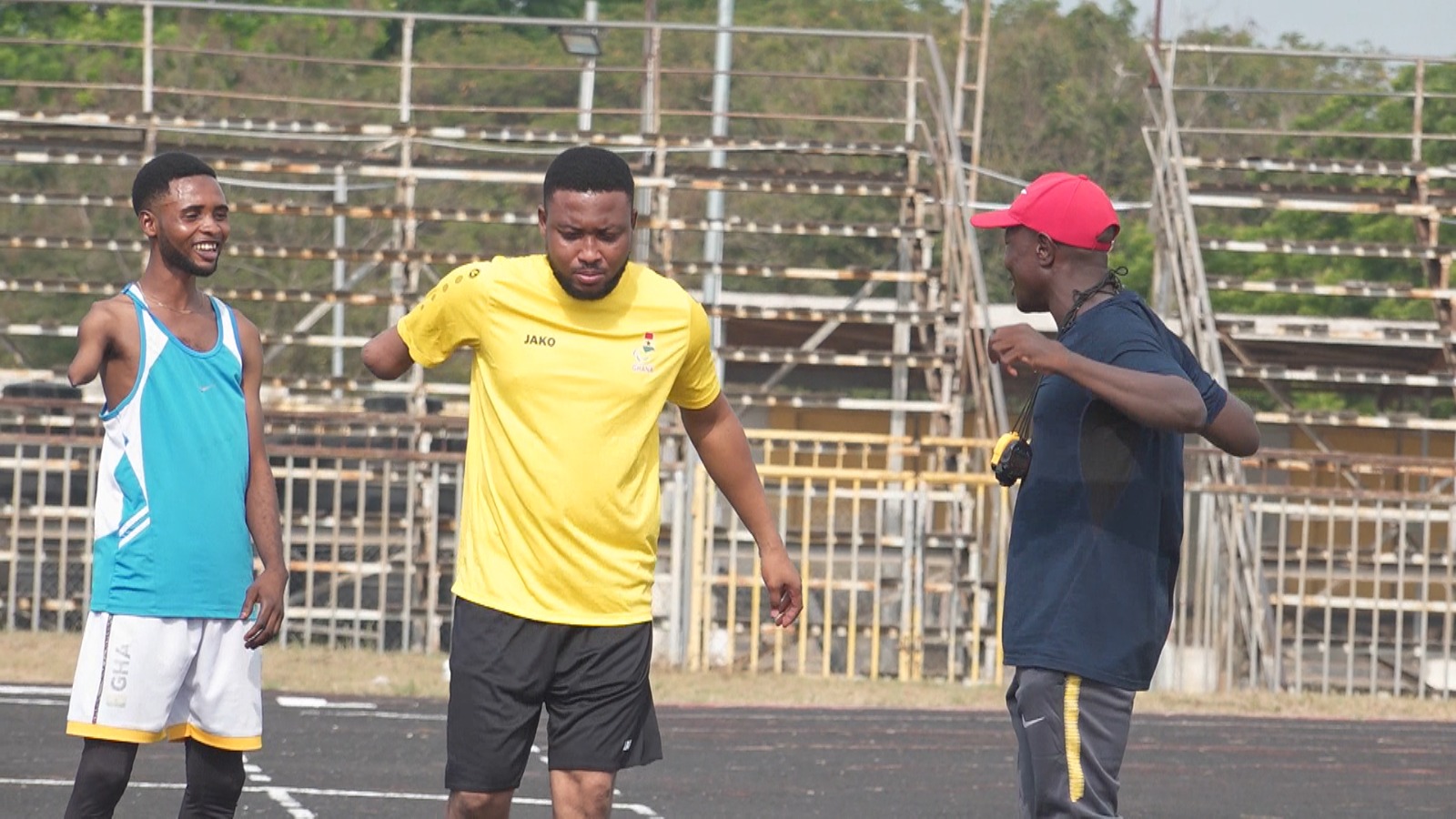One arm, full heart: Two para athletes living beyond limbs – Nsemkeka
They rise before dawn. No stadium crowds. No loud applause. Just grit, grass, and grit again. On a quiet track in El Wak stadium, Accra, three figures stretch into the morning—two young men with missing limbs, and their coach, holding nothing back.
This is not just training.
This is transformation.
Meet Edmond Govina and Amos Ahianga. Two para-athletes. One dream. To rewrite Ghana’s sporting narrative—one stride, one throw, one heartbeat at a time.
Edmond lost his arm in a tragic road accident. What could have broken him became his making. Today, he’s captain of Ghana’s para-athletics team, flinging javelins and shot puts with a force far greater than muscle: purpose.
“I met a physio during rehab,” he says. “They introduced me to sports. Seven years later, I’m still at it. It hasn’t been easy, but I’ve never looked back.”
Amos’ story runs parallel. A sprinter and long jumper, he races not only against time but against doubt, stigma, and hardship. “I outran able-bodied students in school. A coach saw me and said, ‘You can be somebody through athletics.’ That changed my life,” he recalls.
Together, they’ve represented Ghana in Morocco, France, Malawi. But back home, their victories often go unnoticed.
Behind their ascent stands Coach Ibrahim Aminu Sulemana. A man whose eye for talent is matched only by his unwavering belief.
“When I saw Amos run, I knew he was special. I told his teacher, ‘He’s a national asset.’
Edmond came later. His fire was clear. We trained, even without resources.”
But the hurdles off-track are often higher than those on it. Limited competitions. Poor infrastructure. Little financial support. And a system that often forgets its most determined.
“We use our own money for transport. Sometimes, I wanted to give up,” says Amos.
“What we need are competitions in our impairment categories. And equipment—prosthetics, racing chairs. They’re expensive,” Edmond adds.
Yet they persist—not just for medals, but for meaning.
Their message is clear: disability is not a reason to beg, but a call to rise.
“I also barber,” says Amos. “I want people on the street to see that we can do more with our lives.”
“Para-sports can restore dignity,” Edmond adds. “We’re more than our limbs.”
From amputee football to powerlifting, Ghana’s para-athletes are rising. All they ask is that the nation rise with them—with support, structure, and visibility.
Because beyond the missing limbs is something whole: heart.
And heart is what builds champions.

